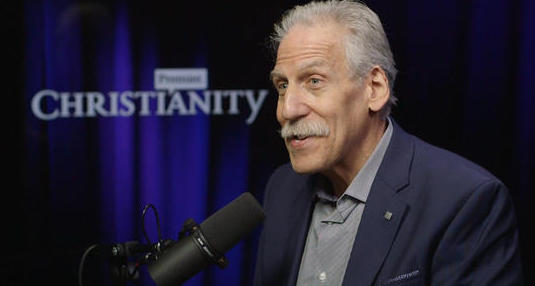Michael Brown fretted over the idea of Christian nationalism in his March 8 WorldNetDaily column:
Have you noticed that, almost everywhere you turn, “Christian nationalism” is in the news? On March 3, a headline on the Christian Post stated: “John MacArthur denounces Christian nationalism as ‘faulty viewpoint’ linked to postmillennialism.” On March 7, a USA Today story announced: “As Trump support merges with Christian nationalism, experts warn of extremist risks.” Similar headlines could be multiplied by the hundreds. But what, exactly, is Christian nationalism? And is it truly a threat to democracy?
Already in November 2022 an article posted on The Conversation noted that, “Talk of ‘Christian nationalism’ is getting a lot louder – but what does the term really mean?” That remains a valid question: What does the term really mean? Or does it mean different things to different people?
Are you a Christian nationalist if you love Jesus and love your country? Are you a Christian nationalist if you are simply a patriotic Christian? Are you a Christian nationalist if you believe that America was founded on Christian principles and that, the more we adhere to those principles the more our nation will be blessed? And were the Founding Fathers Christian nationalists?
Or are you a Christian nationalist if you believe that our nation should be ruled by Christian law? Or that the only ones who have the right to govern America are Christians? Or that the current government should be overthrown because it is anti-Christian?
Brown cited a book on Christian nationalism co-written by Gab founder Andrew Torba while ignoring, as fellow WND columnist Scott Lively did, that Torba is a virulent anti-Semite. Then, much as he did with the definition of the right-wing New Apostolic Reformation movement, Brown quibbled over the a of Christian nationalism:
Two years ago, recognizing that Christian nationalism was going to be a very hot topic (along with the ubiquitous “NAR,” meaning the “New Apostolic Reformation”), I joined together with Dr. Joseph Mattera, a theologian and an international leader of leaders, to draw up the “NAR and Christian Nationalism Statement.” We recognized some dangerous trends in some Christian nationalist circles, the worst of which raised their heads on Jan. 6, 2021. But we also recognized that fine, God-fearing, America-loving, followers of Jesus would be tarred and feathered as Christian nationalists.
If you have the time, I would encourage you to read the entire statement, which is about 1,500 words long. For the moment, rather than giving my own definition of Christian nationalism, which I really can’t do, since it means different things to different people, let me cite the final two sections of our statement.
But Brown is very much giving his own definition of Christian nationalism — given that he co-wrote an entire statement trying to define it — and, as with his attempts to redefine NAR, his goal is to make it sound less scary. To that end, he offered a list from his statement identifying things that are “spiritually dangerous,” such as “We marry the cause of Christ to the cause of a political party (or leader) as if they were one and the same” and “We make a human being into a political savior.” Ironically, these are things Brown himself has violated, given that he wrote two books encouraging his fellow evangelicals to support Donald Trump despite his record of amorality because he supported evangelical agenda items.
He also reproduced a list “contrasting the Kingdom of God with extreme nationalism,” with statements such as “Followers of the Kingdom of God are passionate about a Christ-centered global awakening. Adherents of extreme nationalism are focused primarily on a political/ideological awakening.” Yet Brown’s history is that he so demonizes anything even slightly liberal that he does, in fact, hitch his religion to right-wing politics. Brown concluded:
My suggestion is that, rather than debate the meaning of Christian nationalism we lay out what we do and do not believe, affirming what is right and rejecting what is wrong. Then, to the extent our convictions are biblically based, we seek to live out those principles for the good of the nation, without coercion, force, or, God forbid, violence.
Let’s honor Jesus in our own lives while we work for the betterment of the nation as a whole.
Of course, the entire point of his column was to serve up a more favorable definition of Christian nationalism to make it sound more palatable.
